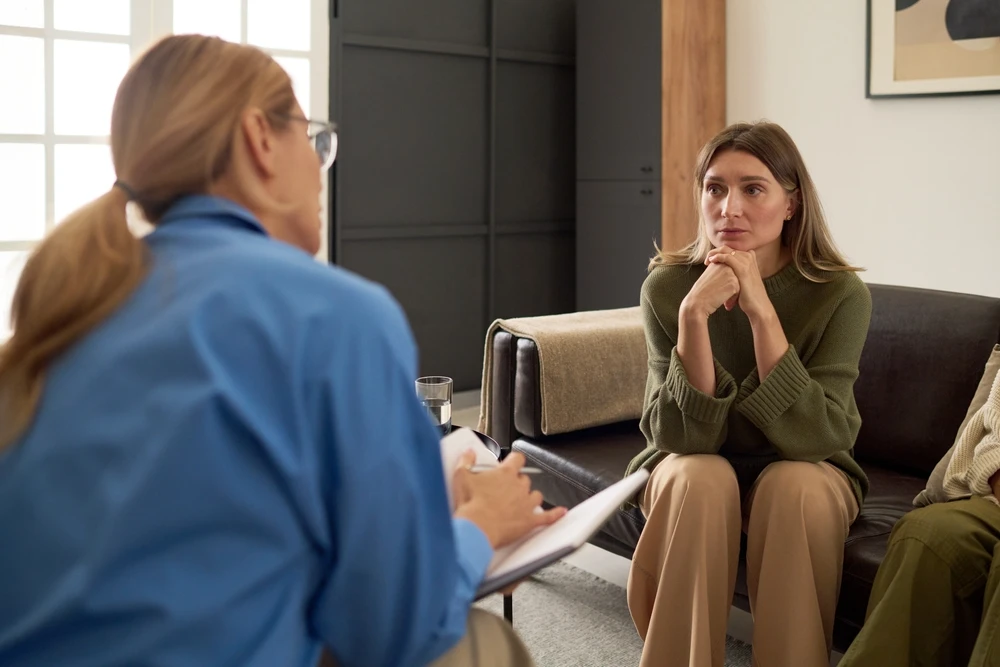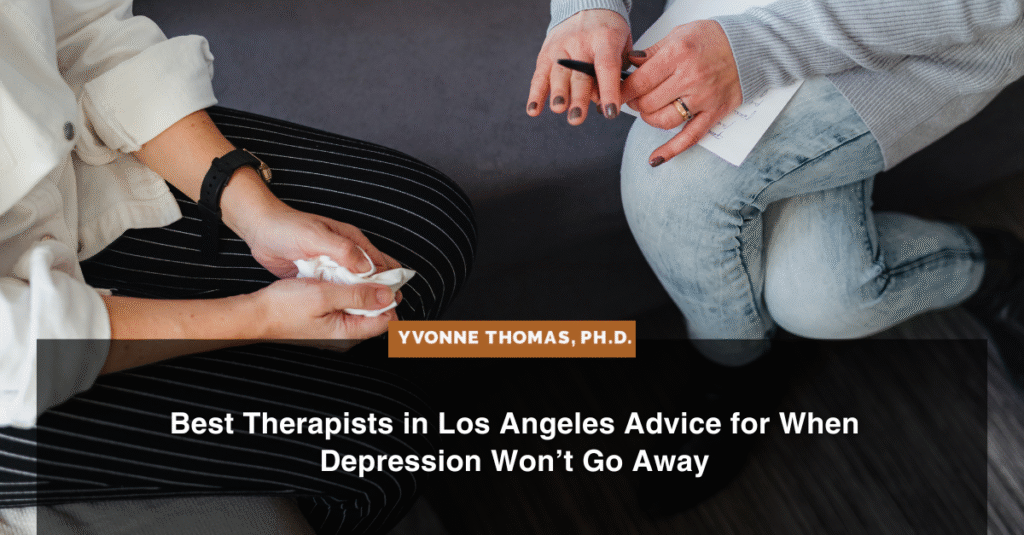When feelings of sadness or emptiness linger long after it seems like they should have faded, it can be difficult to know where to turn. The truth is that depression doesn’t always go away on its own. Often, it requires care, patience, and the right kind of support to begin healing. The best therapists in LA understand that depression is not a sign of weakness.
Rather, it’s a signal that something deeper needs attention. The good news is that there are ways—both small and significant—to help lift yourself out of the darkness, one step at a time.

Why Depression Lingers
Depression that persists beyond a few weeks or months can take many forms. Some people feel a constant heaviness, while others experience waves of sadness that come and go. You might find it hard to concentrate, lose interest in activities you once loved, or struggle with sleep and appetite changes. What makes persistent depression so frustrating is that it doesn’t always respond quickly to self-help methods or life changes.
Even when you’ve tried to stay active, eat well, or think positively, depression can remain stubborn. That’s when it’s time to remember: recovery is possible, but it often takes consistent effort and guidance. Depression is both emotional and physical—it affects the body’s energy, thoughts, and motivation. So, overcoming it means addressing both mind and body together.
Taking Small, Immediate Steps Toward Feeling Better
When you’re struggling with depression, even simple tasks can feel overwhelming. The key is to start small and realistic. Tiny shifts in your routine can create gradual improvements that build momentum.
Here are a few things you can do right now to help yourself feel just a little better:
- Get outside: Fresh air and sunlight can improve mood and energy levels. Even a short walk or sitting near a window can help.
- Connect with someone you trust: Isolation feeds depression. Send a message, make a quick call, or invite someone to meet for coffee.
- Do one productive thing: It could be washing a few dishes, organizing a drawer, or making your bed. Accomplishing even small goals builds confidence.
- Eat something nourishing: Balanced meals stabilize your energy and emotions, especially foods with omega-3s, fruits, and lean proteins.
- Practice breathing exercises: Deep, slow breaths help calm the nervous system and reduce stress levels within minutes.
These small actions may not erase depression overnight, but they begin to break the cycle of inactivity and negative thought patterns that keep it in place.
What You Can Plan for Tomorrow — Guidance from Top Therapists in LA
Tomorrow offers an opportunity to take slightly bigger steps. Planning ahead, even in small ways, can create a sense of control and forward motion—both of which depression tries to take away.
Consider planning to:
- Schedule a therapy session. Taking that step can be a powerful declaration that you deserve help. The best therapists in LA can offer tailored strategies to help you identify the root causes of your depression and provide coping techniques that fit your needs.
- Set a simple goal for the morning. It could be going for a short walk, taking a shower first thing, or preparing a healthy breakfast. Small achievements early in the day create momentum.
- Limit negative input. Try to reduce exposure to stressful news, social media comparisons, or draining environments. Curating your mental space helps make recovery easier.
- Write down your feelings. Journaling can help you process emotions that might otherwise feel tangled and overwhelming. Seeing your thoughts on paper can create perspective.
Making a short list of intentions for the next day can give you something to look forward to. It provides structure when your mind feels clouded and motivation when you’re struggling to find it.
Building a Plan for the Week Ahead
While daily steps create immediate relief, planning for your week helps sustain progress. Depression often thrives in uncertainty, so structure and purpose can serve as strong antidotes.
Try creating a weekly rhythm that includes:
- Regular physical activity: You don’t need an intense workout routine. Gentle exercise like yoga, stretching, or walking releases endorphins and reduces stress.
- Social time: Schedule at least one activity with someone supportive, whether it’s a friend, family member, or colleague. Human connection helps balance emotional health.
- Creative outlets: Painting, writing, gardening, or playing music can be therapeutic. These activities express emotions in a nonverbal, healing way.
- Self-care rituals: Set aside time to relax and recharge, such as taking a bath, reading a favorite book, or meditating.
- Professional support: Therapy can become a consistent part of your weekly schedule—a dedicated time to focus entirely on your mental health.
Creating structure is not about rigid schedules; it’s about giving yourself the stability depression often takes away.
How Therapy Helps When Depression Doesn’t Lift
Sometimes, even with the best efforts, depression can persist. That’s when professional help becomes invaluable. The best therapists in LA recognize that depression can have many layers—biological, emotional, environmental, and situational. Working with a therapist allows you to unpack these layers safely and begin addressing what’s underneath.
A licensed therapist like Dr. Yvonne Thomas uses evidence-based techniques to help patients manage depression, including:
Dr. Thomas always tailors therapy to the client. For example, if it’s a good fit, Dr. Thomas can provide cognitive-behavioral therapy (CBT), which helps identify and change negative thought patterns that fuel depression.
Dr. Thomas creates a nonjudgmental space where you can express yourself freely. You’re not alone in trying to understand your feelings or figure out next steps. Instead, you’re guided through them by someone who has the training and compassion to help you rediscover your strength and sense of hope.

Why Finding the Right Therapist in Los Angeles Matters
Not all therapy experiences are the same. The effectiveness of therapy depends heavily on the relationship between you and your therapist. The best therapists in LA know that healing requires trust, empathy, and collaboration.
Dr. Yvonne Thomas provides a safe and compassionate environment where you can discuss your struggles without fear of judgment. Her approach to individual counseling in Los Angeles focuses on helping clients identify both internal and external factors contributing to depression. By personalizing treatment plans, she helps you uncover what’s blocking your progress and empowers you to take the steps necessary for emotional healing.
Therapy is not about instantly removing pain—it’s about learning how to navigate it. Through consistent sessions, you can build a new foundation of understanding, balance, and strength that supports long-term emotional well-being.
Depending on what best serves your needs, she can provide couples counseling, life transition counseling, and grief counseling in Los Angeles as well as throughout the state.
With years of experience helping individuals overcome depression, she understands how to guide clients toward lasting emotional health. Therapy can work—especially when it’s with the right therapist who sees you, listens to you, and helps you heal from within.
Let this be the moment you decide that your mental health matters. You deserve to feel better, and with Dr. Thomas’s compassionate support, you can.
If your depression hasn’t gone away and you’re ready to take meaningful steps toward recovery, contact Dr. Yvonne Thomas for a free consultation.
